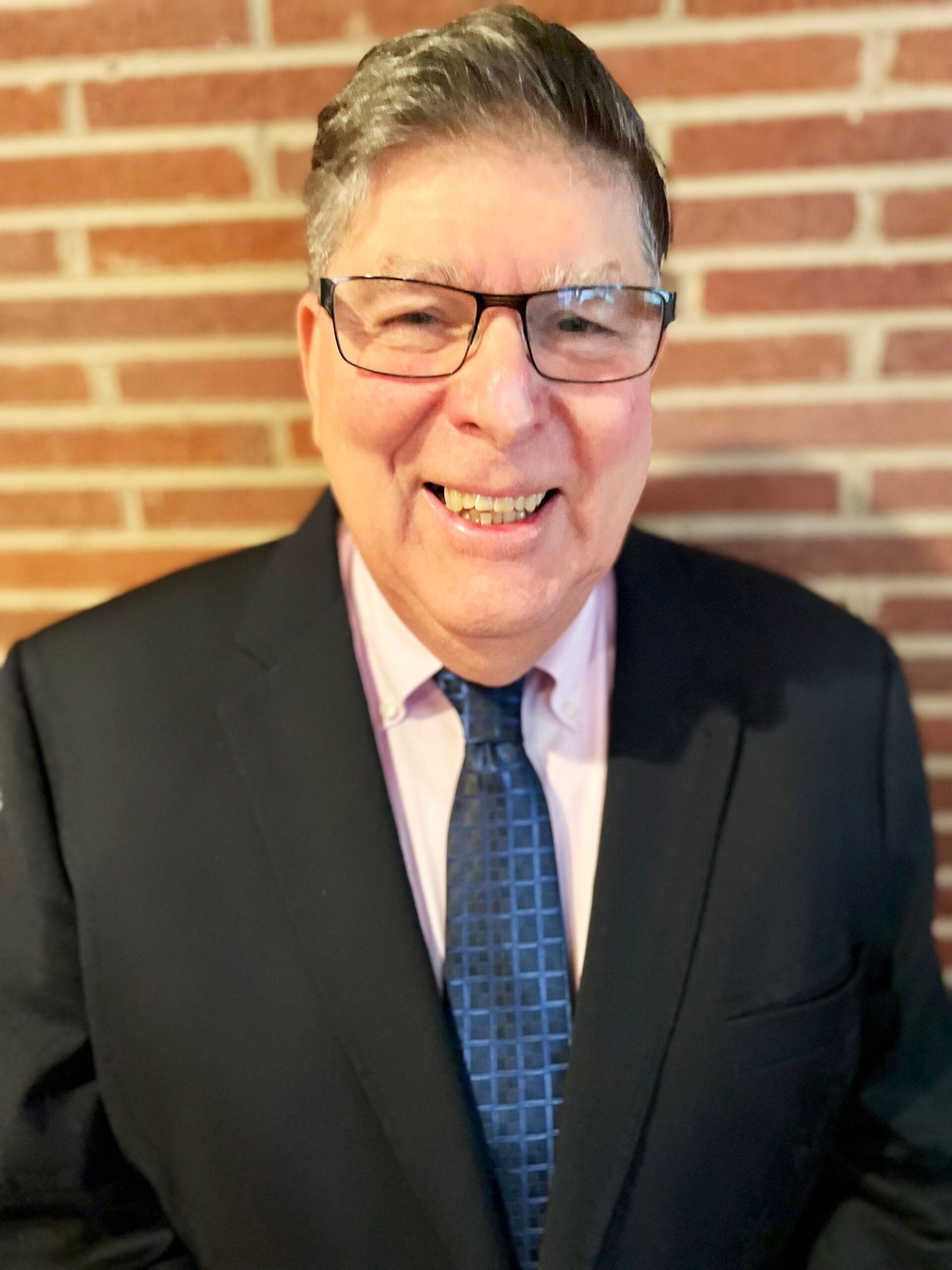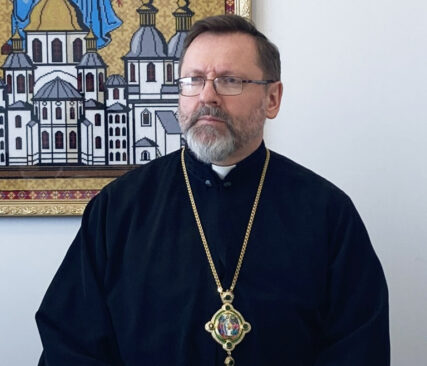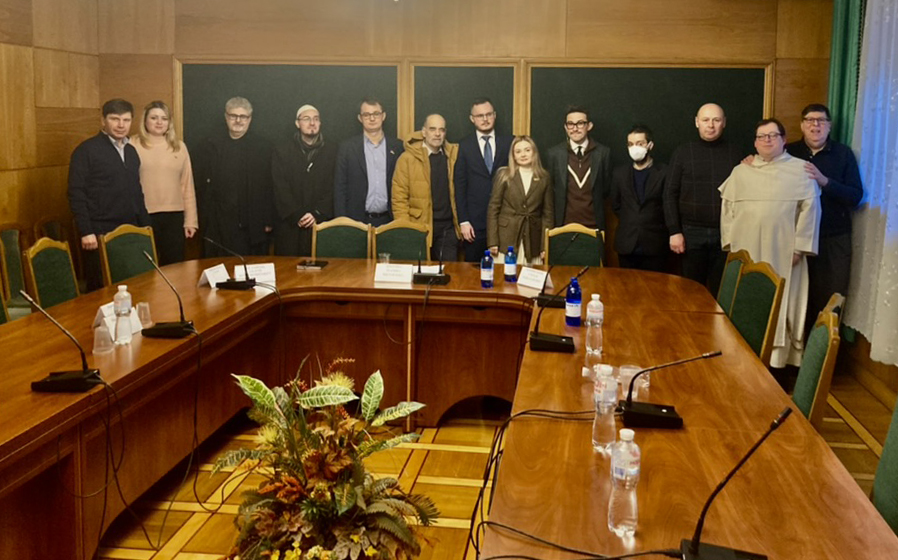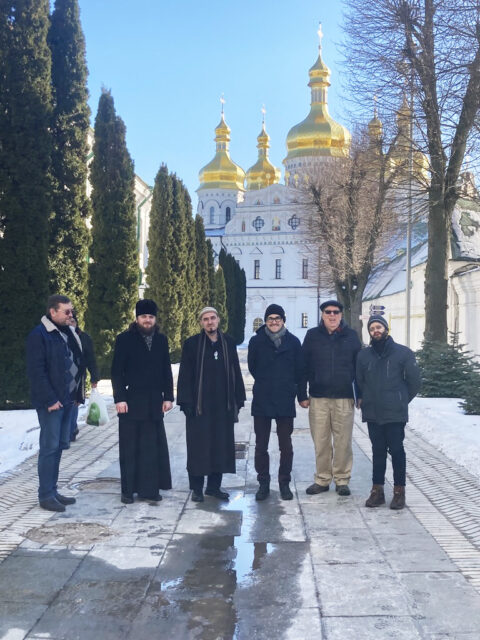(RNS) — One year ago, Russia invaded Ukraine and started a war that has wreaked untold damage — tens of thousands of deaths, cities flattened and more than 8 million refugees, many of whom fled to neighboring European countries.
Religious groups have responded generously. Samaritan’s Purse, to cite one prominent Christian relief organization, has made 42 airlifts of food, water and medicine to the war-ravaged country since the start of the war on Feb. 24, 2022.
But Ukraine is a diverse country religiously, and Americans of different faiths have offered prayers and provisions. Before World War II, Jews comprised some 26% of the population of Kyiv, the capital. Famously, its president, Volodymyr Zelenskyy, is Jewish. American Jews, many of whom are descendants of the Jews of Ukraine, have not forgotten, sending supplies, money and emotional ballast.
RELATED: Across US, faith groups mobilize to aid Ukrainian refugees

Rabbi Charles Feinberg is a retired rabbi from Washington, D.C.’s Adas Israel Congregation. Photo courtesy Charles Feinberg
Earlier this month, Rabbi Charles Feinberg joined an interfaith delegation that traveled to Kyiv and its surroundings to learn more about its religious communities, bear witness to the unfolding loss of life and limb and show solidarity with the Ukrainian people.
His mission, organized by a Polish group called “Europe, A Patient,” included a British imam, a British rabbi and two Polish Catholic priests. The group of seven stayed at a Dominican monastery in Kyiv during their five-day tour, Feb. 7-11.
RNS spoke to Feinberg, now 76 and retired from Adas Israel, a prominent Washington, D.C., Conservative synagogue. The following interview was edited for length and clarity.
Why did you decide to take this trip?
It sounded like an important opportunity. The Ukrainians extended an invitation, and I felt honored by it. I arrived Tuesday morning and left Saturday evening. You can’t fly into Kyiv. The airport is closed. I flew to Warsaw (Poland) and then took a series of train trips, from Warsaw to Krakow and then from Krakow to Przemyśl and then an overnight train from Przemyśl to Kyiv.
Isn’t it dangerous to travel to Ukraine?
There was an element of danger to this. But the people of Kyiv go about their normal business. There were two air raid sirens when we were there. We went into a shelter for two or three hours. We found out later that the Ukrainian air force had shot down 10 drones over Kyiv. We didn’t hear anything. I read that since the start of the war there have been 600 air raid alerts in Kyiv alone. Another town south of Kyiv was hammered really hard with about 17 missiles (while we were there). So you never know where there might be a missile or drone attack. We were told there would be rolling blackouts. But we didn’t experience that. There is a curfew from 11 p.m. to 6 a.m. So we had to hustle to be back (at the monastery) before the curfew.
Does Kyiv look destroyed?
Not at all. It’s a beautiful city on the Dnieper River. We went to some of the towns in the 60 kilometers around Kyiv — Bucha, Irpin and Borodyanka — where the war was battled fiercely and saw a lot of destroyed buildings and evidence of human rights abuses and atrocities.

The mission to Ukraine met with Archbishop Sviatoslav Shevchuk of the Ukrainian Greek Catholic Church. Photo courtesy of Rabbi Charles Feinberg
What was the mood of the Ukrainians?
They’ve gone through incredible trauma. We heard from people who lost family members. We heard from a woman in Borodyanka whose building was hit by a missile. She got out, but her daughter and son-in-law died. Everyone there has gone through some sort of trauma. There are centers for displaced persons in Kyiv. We visited one with lots of families and children. We heard personal testimonies of people who fought against the Russians and have suffered because of it. We heard from a woman who is a psychologist who worked with developmentally disabled children. But all those children were evacuated from Ukraine and placed in different European countries. So she lost her job. Then she started working with families who experienced trauma in the war. She said after a while it drove her crazy. She herself experienced trauma personally. Her son-in-law was killed.
Many Ukrainians have relatives in Russia. We came across a woman in Irpin where many apartment buildings were destroyed. She had shot a video of what was happening and sent it to her relatives in Russia. They refused to believe it. (They) said the soldiers were actors dressed up as Russian soldiers. The anger at Russia is quite high, to say the least.
What are the displaced people’s centers like?
In Kyiv, one of them is a four-story building. They made playrooms for children and dormitory-like rooms for families. Borodyanka had 29 apartment buildings (before the war), and 20 of them were destroyed. We saw temporary housing put up. We saw a school that was gutted.
What kind of support can religious groups in the U.S. provide?
Ukraine is diverse religiously. There’s a significant Muslim population that lives in the East, in the Donbas and Crimea. The Russians persecuted Muslims there. They closed some of the mosques. There are at least three or four branches of Orthodox Christianity, and they make up the largest Christian group. One branch of the Orthodox Church is affiliated with the Orthodox Patriarch in Constantinople; another branch is affiliated with the Orthodox Patriarch in Moscow. A third branch is an independent Ukrainian Orthodox Church.
We heard at length about the need for medical supplies of all kinds, from bandages to ambulances. A lot of soldiers lost limbs, so there’s a need for prosthetic devices. We learned that the Russians don’t pick up their fallen soldiers from the battlefield. The bodies decay and decompose, and the groundwater becomes poisoned. In some areas there’s a shortage of fresh water. So Ukrainian relief is really important, both to meet the needs of the war and to start rebuilding.

The visiting delegation met with two members of the Ukrainian Parliament alongside some civil servants. Photo courtesy Charles Feinberg
Are you afraid the world’s attention is receding or shifting elsewhere?
Yes, that’s a concern as the war grinds on. But the Ukrainians aren’t tired of it. They will keep fighting until they get all their land back. There’s a very strong consensus about that.
It’s unlikely they’ll get all the land back, though, isn’t it?
They don’t think so. They speak very confidently about it.





